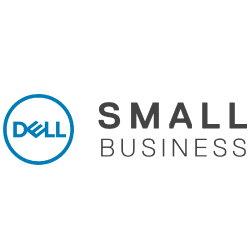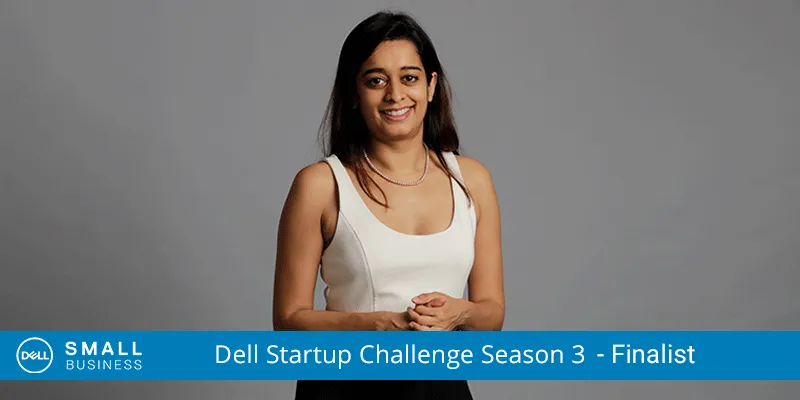
Dell Small Business
View Brand PublisherHow Outline India is bringing NGOs and funders on the same platform through Track Your Metrics

According to the Central Bureau of Investigation, as of 2019, India has around 31 lakh NGOs that lack proper funds and research capacity to effectively measure their work and its impact, which in turn leads to lack of knowledge about their work. On the other hand, CSR wings/ funding organisations do not have a uniform mechanism to induct NGOs or to gauge their performance in a cost-effective manner. While assessments are done once a year, these can be expensive and time-consuming. This is where Outline India (OI) makes a difference. With a vision to create social impact through data, OI procures relevant, reliable and actionable data through ground level work.
Driving impact through data
Established in 2012 by Prerna Mukharya, Outline India works with relevant stakeholders in the development sector to operationalise data-driven impact. Prerna has worked briefly as a research assistant at Harvard, MIT and Centre for Policy Research. A Chevening Fellow from Oxford University and a Raisinia Fellow, she was on Fortunes’ 40 Under 40 list and on Forbes’ list of trailblazing women in 2017 and 2018. She was also featured in India Today’s Top 10 Most Powerful Innovators in 2018.
“We help you understand how to create behavioural change, how to spend funds to create maximum social impact, how to reach the farthest of villages or your target audience,” says Prerna. OI is an independent profitable organisation that is self-funded.
Her team spends a lot of time in the field. “As a researcher who works on the field, I believe in creating opportunity and innovation at the grassroots for the ‘superset of India’ which lives in villages and has limited access to the internet, among other essential resources. To be at the grassroots is a super exciting place to be - where every small change has the potential to make a huge impact,” says Prerna.
Over time, they realised that many organisations could not afford them, primarily small NGOs. On the other end, big funders /donors/CSRs could order an evaluation or data collection exercise only once a year, given how much time, effort and money it normally requires. However, this would mean that the funder would not know what’s happening the other 11 months. They wondered if they could use technology to make this evaluation cheaper and recycle information, they could change how things work in the development sector. They could make NGOs compete for the same stash of donor money, and ensure that grantees knew they were monitored through the year - pushing them to do a better job. It was from that context that Track Your Metrics was launched in 2019.
Bridging the NGO-funder gap
Track Your Metrics (TYM) was born out of the realisation that there are millions of small not-for-profits spread out across India and the developing world. Sadly, no one knows who they are, where they are, what they do, and what they need to make an impact. At the other end, philanthropists, funders and donors struggle to figure who to fund and how much to fund. Those that already fund certain organisations struggle to figure whether they made the right choice, they want to know the extent and nature of the on-ground impact. “Trying to reach out to the last mile beneficiary is impossible, and we thought TYM could solve this two-sided problem,” says Prerna.
Based in Gurgaon, the TYM platform and app creates a marketplace where funders can find NGOs to fund and vice versa based on micro datasets. In other words, TYM is a simple solution which provides a tool to aid impact assessment and bridges the funder-NGO information asymmetry gap. The platform provides ‘pre-packaged surveys’ in the sectors of health, education and Water, Sanitation and Hygiene (WASH). These are assessment/ audit tools that already exist in the ecosystem (works of governments, the UN, World Bank and other leaders), but they are distributed across multiple websites or hidden away in reports.
Data is collected using an Android app, allowing for real-time field data collection in the remotest of areas. A dashboard is provided with a simplistic graphical representation of the data collected, and customised reports are generated which can be shared with potential donors or grantmakers to enable accountability. “I really think TYM can change the way the social sector manages its money, executes its programmes and tracks progress,” says Prerna.
Embracing challenges along the way
The decision to be an entrepreneur never existed for Prerna, it happened along the way.
“One has an idea and then finds a way to execute it. Entrepreneurship is a culmination of that extended period of grit and hard work,” says Prerna. Setting up a company is never an easy feat, and initially, they got flak for being a for-profit. “I do think incentives are crucial to be sustainable, to grow and to innovate. We never went after investors and have maintained a low-key profile as Outline India,” she says.
TYM is a different ball game altogether, as it makes use of technology, is fast, needs external support and is a whole new learning curve for their team. They are now commencing their hunt to look for investors for their seed round. Having run a social enterprise like Outline India for nearly seven years, she has an added advantage when it comes to TYM. “We had the chance to live, study and understand the pain points much better than outsiders. Things at stake become larger, but the win or the outcome may be as rewarding,” she says.
The road ahead outlined
Till date, Outline India has worked across 4,500 villages in 24 states, representing 4.5 million stakeholders. The team hopes that in due course, TYM will claim its rightful place as a tech platform in the development sector. “I would love to see a level playing field and conversations between NGOs and funders on the basis of datasets,” says Prerna. These datasets themselves would be a gold mine and could be used repeatedly. Her dream is for TYM to eventually evolve into an AI platform that brings all the big funders and not-for-profits in search of funding under one roof.
Outline India and the Dell Startup Challenge
The Outline India team has a lot to be excited about, as Track Your Metrics was chosen as one among four finalists out of 545 entries of the Dell Startup Challenge Season 3. Outline India was looking for more visibility and media recognition for Track Your Metrics, and they found that this challenge was a great platform to spread the word to people who would benefit from their product. "I found out about the challenge from YourStory and applied. I had a great time writing about the pain points and sharing the solution we came up with to tackle the problem," says Prerna.
The Dell Startup Challenge, in association with YourStory, is a platform for startups to present their business ideas to a jury, and stand a chance to win Dell Vostro laptops and Dell technology worth $5,000. Dell is committed to accelerating the increasingly powerful role that entrepreneurs play in driving global economic growth, and wants to empower entrepreneurs by providing them with the tools, technology and resources they need.
This year, in addition to the general categories, an additional special category for women-founded startups was introduced, where Outline India emerged as the winner. An ecstatic Prerna says her immediate plan is to scale up. "Once the product gains traction, we hope to expand outreach to other developing countries by integrating a simple language plugin," she says. She would like funds spent in the development sector to be utilised properly, and looks forward to organisations making more informed and data-driven decisions.







